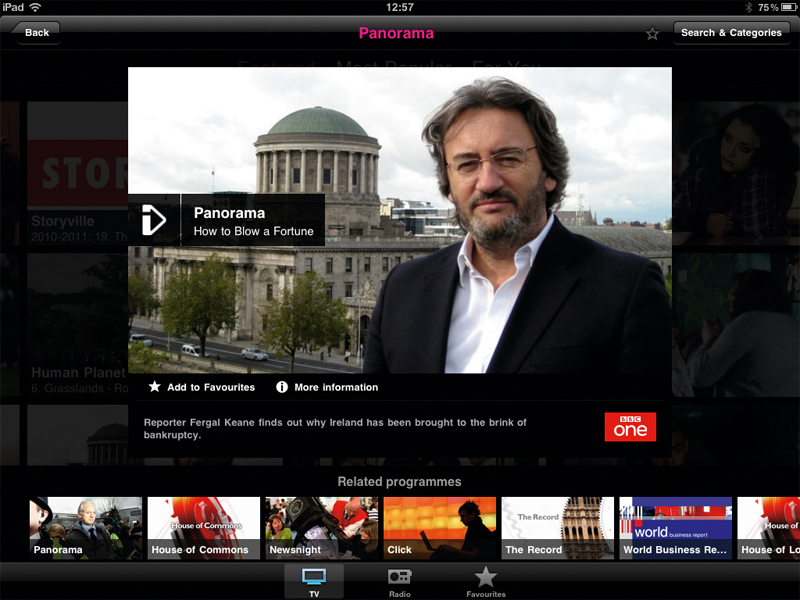How can iPlayer charges be enforced?
It's reasonable to pay, but unclear how it should be done

There's a loophole in the TV licensing system that means iPlayer users don't need TV licences.
However, there's a fairly big caveat: the loophole applies only if your viewing is exclusively on-demand, and that you never, ever watch programmes that are live or "virtually live". In other words, pausing Strictly so you can make a cup of tea doesn't count.
In effect, then, the loophole affects around three people in the whole of the UK; the BBC's own research suggests the number is just 0.2% of households. The problem, though, is that TV is changing - and those changes mean that the figure of 0.2% is about to get a whole lot bigger.
The BBC doesn't see that as an immediate problem, but the government does - and the government is muttering about changing the law to change the way the BBC is funded.
That worries me. Politicians tend to love the BBC until they get into power, at which point they do their very best to cut its legs off. The current mob are no exception, and a cynic might suggest that they're not entirely unbiased: they seem awfully pally with the owners of commercial broadcasters and enormous search engines that have just gone into the broadcasting business.
It doesn't help that the same politicians rely on votes from the readers of newspapers whose anti-BBC stance is in no way connected with their parent companies' ownership of, er, lots of broadcasting organisations.
Should iPlayer be exempt from the licence fee? Probably not.
Get daily insight, inspiration and deals in your inbox
Sign up for breaking news, reviews, opinion, top tech deals, and more.
Can we trust the government to approach the issue without bias? I very much doubt it.
Reasonable to pay - but how?
I need to declare my own bias here: I do a weekly tech blab on BBC Radio Scotland and I have friends in the Corporation, so I'm probably more pro-BBC than some.
Then again, as someone who listens almost exclusively to BBC radio programmes, enjoys lots of BBC programmes and podcasts, remembers when the iPlayer gave other broadcasters a much-needed kick up the backside and admires the BBC for refusing to let Microsoft charge for iPlayer on Xbox, I'd be pro-BBC anyway.
I don't think it's unreasonable to ask iPlayer users to pay for the service they use. The current situation, I think, is unfair: should skint single mums be hounded for their licence fees while a hard core of affluent, "oh, I don't watch television; I get it all on my iPad via my fifty meg broadband connection" owners don't pay a penny?
Is the licence fee the best way to solve that? Perhaps not, but I'm trying to think of an alternative that isn't worse. Turning iPlayer into an ad-funded shoutfest or implementing a broadband levy isn't fair on those of us who do pay for our TV licence, and neither would be a Sky-style subscription service.
I can't imagine a verification system - "enter your TV licence reference number and we'll check it's valid and that nobody else has used it before you can use iPlayer" - would be particularly practical either.
And anyway, the licence fee isn't just about TV programmes: it covers radio, it's paying for the rollout of DAB and it's being used to pay for improved rural broadband as well. It helped pay for the digital switchover too. How many of the 0.2% haven't benefited from any of those things?
The licence fee isn't perfect, I know. But I think the alternatives are worse.
Writer, broadcaster, musician and kitchen gadget obsessive Carrie Marshall has been writing about tech since 1998, contributing sage advice and odd opinions to all kinds of magazines and websites as well as writing more than a dozen books. Her memoir, Carrie Kills A Man, is on sale now and her next book, about pop music, is out in 2025. She is the singer in Glaswegian rock band Unquiet Mind.
